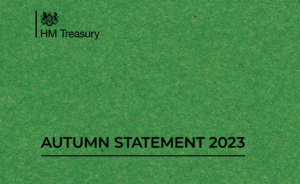Autumn Statement 2023
The Autumn Statement package delineates a set of tax measures aimed at fortifying economic growth by supporting UK businesses and bolstering employment. Additionally, administrative changes have been introduced to streamline and modernize the tax system, facilitating more accessible interaction for businesses.
National Insurance contributions
Noteworthy measures include a reduction in the main rate of Class 1 employee National Insurance contributions (NICs) from 12% to 10% effective January 6, 2024, and a decrease in the main rate of Class 4 self-employed NICs from 9% to 8% from April 6, 2024. Commencing April 6, 2024, self-employed individuals with profits exceeding £12,570 will be exempt from paying Class 2 NICs but will retain access to contributory benefits, including the State Pension. Further guidance on these changes will be published, urging businesses to collaborate with payroll software providers to prepare for the implementation.
The National Insurance contributions (NICs) relief for hiring veterans has been extended until April 5, 2025, providing employers relief on secondary Class 1 NICs for the initial 12 months of veterans’ civilian employment. This relief is applicable to earnings up to the Veterans Upper Secondary threshold of £967 per week.
Capital Allowances
The announcement also sets the permanence of full expensing and the 50% first-year allowance for Capital Allowances, initially introduced at Spring Budget 2023. This entails a 100% first-year allowance for main rate expenditure and a 50% first-year allowance for special rate expenditure, without the previous expiry date of March 2026.
Research and Development
Various tax relief measures have been introduced, such as enhanced support for Research and Development (R&D) intensive small and medium-sized enterprises, an extension of the ‘sunset date’ for freeport tax reliefs, and administrative adjustments to creative industry tax reliefs.
Making Tax Digital (MTD)
The government is set to make design changes to Making Tax Digital (MTD) for Income Tax Self Assessment (ITSA), simplifying the system for taxpayers and representatives. Notable changes include the removal of the End of Period Statement requirement and exemptions for certain taxpayers, including those without a National Insurance number. Draft regulations for technical consultation will be published later in 2023.
National Living Wage
Effective April 1, 2024, the National Living Wage will witness a 9.8% increase to £11.44 per hour for eligible workers aged 21 and over across the UK. Furthermore, young people and apprentices on the National Minimum Wage will experience an increase to £6.40 per hour.
Off-Payroll Working (IR35)
In addressing Off-Payroll Working (IR35), the government will legislate in Finance Bill 2023 to empower organizations to reduce their additional PAYE liability under the off-payroll working rules.
This reduction accounts for Income Tax and Corporation Tax already paid by a worker and their intermediary in cases of non-compliance with the rules. These changes will be effective from April 6, 2024, with a summary of responses to the April 2023 consultation also published Autumn statement 2023.



